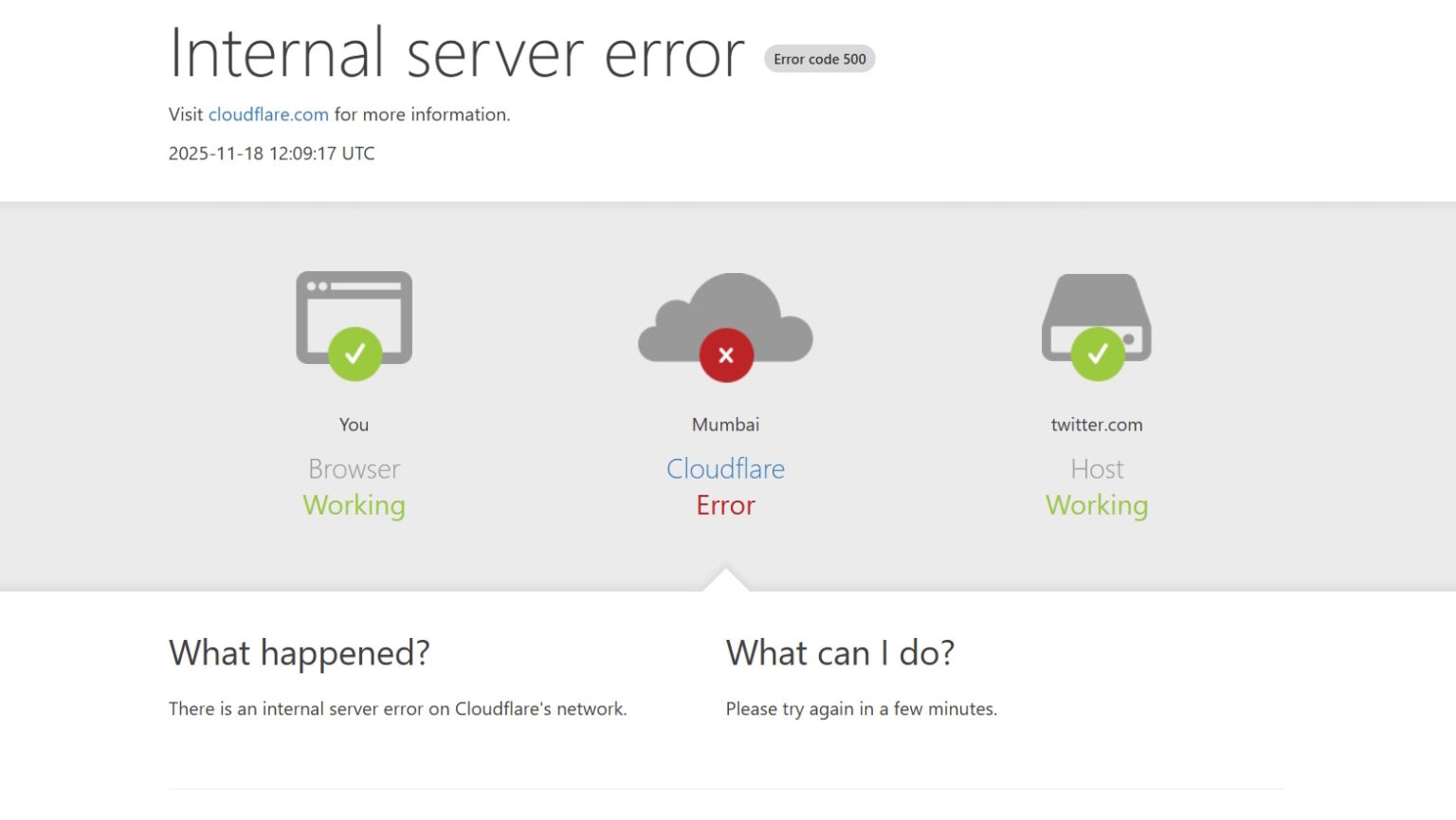UPDATED: 19:02 (UAE)
Cloudflare says its services have been restored after a brief but disruptive outage that affected a wide range of websites, including platforms like X and major consumer brands such as McDonald’s. The company reported that it deployed a fix and is now monitoring network activity to confirm that traffic has stabilized. Early checks show that previously affected sites are loading again, signaling a return to normal operations.
The outage coincided with what Cloudflare described as a significant and unusual traffic spike, a pattern that often raises questions about whether the surge was the result of routine network volatility or something more deliberate. While the company has not confirmed the cause, unexpected surges of this kind can indicate anything from misconfigured routing to potentially malicious traffic. For now, Cloudflare’s public statements remain focused on recovery rather than attribution.
In what feels like a depressingly familiar event, a core pillar of the modern internet—Cloudflare—has tripped, dragging down an immense slice of the global web with it. If you’ve been slamming your refresh button today, you’re not alone. This isn’t just an inconvenience; it’s a profound demonstration of the digital world’s extreme centralization and fragility.
Recall the chaos when Amazon Web Services (AWS) went dark in October 2025, crippling apps from Disney+ to Snapchat? This Cloudflare blunder is shaping up to be just as brutal, once again exposing how dependent billions of users and countless businesses are on a handful of mega-corporations remaining functional.
The signs of failure were immediate and dramatic. Outage trackers like Downdetector lit up like a Christmas tree, indicating massive spikes in reports across every sector.
Cloudflare itself has grudgingly acknowledged the issue, noting it’s dealing with a widespread disruption.
The company’s status page initially offered a vague message, confirming they are “Investigating an issue which impacts multiple customers: Widespread 500 errors, Cloudflare Dashboard and API also failing.” This is the industry-standard way of saying, “We know we messed up, and we are scrambling.”
The sheer volume of affected services underscores Cloudflare’s critical role. When they fail, you lose access to platforms that run everything from your social life to your finances. The confirmed casualties include:
- Social & Communication: The Meta empire (Facebook, Instagram) and X.
- Creative & Productivity: Canva, OpenAI (and thus, ChatGPT).
- Media & Entertainment: Spotify, YouTube (Alphabet), and major online games like Valorant and League of Legends.
- Commerce & Cloud: PayPal and sections of Amazon/AWS relying on Cloudflare infrastructure.
This isn’t just a list of some popular sites; it’s a snapshot of the digital economy momentarily grinding to a halt because one service choked.
This outage isn’t a fluke; it’s a systemic failure. It lays bare the uncomfortable truth: the internet is surprisingly fragile.Our collective addiction to “the cloud” has created a highly brittle ecosystem.
Every time a major provider like Cloudflare goes down, millions of businesses suffer financial losses, employees lose productivity, and general users are left stranded. The convenience of relying on tech behemoths comes with the massive risk that their singular failure can cause global, immediate chaos. The current state of web infrastructure is less a resilient network and more a high-stakes house of cards.







